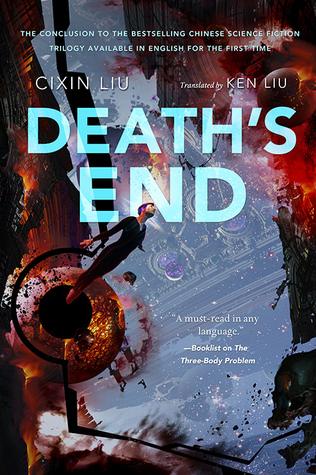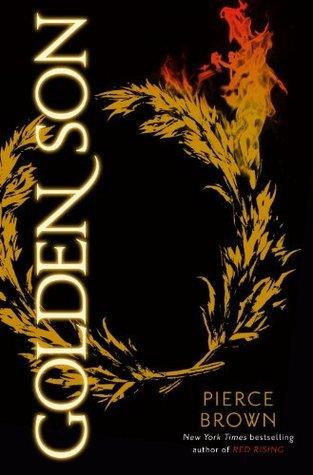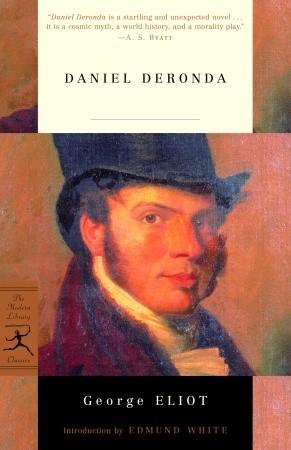Death’s End by Liu Cixin Book Summary
Discover the intricacies of "Death's End" by Liu Cixin in our comprehensive book summary. Explore key insights, thought-provoking themes, and an in-depth review that unravels the epic conclusion of the Three-Body Problem trilogy. Perfect for fans and new readers alike!
Death's End Book Summary
Death's End by Liu Cixin is the thrilling conclusion to the acclaimed Three-Body Problem trilogy, blending hard science fiction with profound philosophical questions about humanity's place in the universe. This book summary and review delve into the novel's complex narrative, exploring its key insights on survival, cosmic civilization, and the consequences of advanced technology. Join us as we unpack the gripping story, its mind-bending concepts, and why Death's End is a must-read for sci-fi enthusiasts and thinkers alike.
Enhance your reading journey with our comprehensive Binti Book Summary, Review & Key Insights. Discover key themes, critical analysis, and valuable takeaways to deepen your understanding today.
Death's End by Liu Cixin - Introduction
I had no idea that contemplating the fate of entire civilizations could feel so... personal. In Death’s End by Liu Cixin, the way it explores the universe isn’t just about distant stars or alien empires—it made me rethink how fragile and interconnected life really is, including ours. Honestly, I picked up this book initially because I was curious about the hype around the Three-Body Problem series and figured, why not dive into some epic Science Fiction that’s also steeped in Chinese culture and history?
What really hooked me was how it blends Space Opera with deep philosophical questions about survival and trust on a cosmic scale. If you’re someone who loves stories that challenge your perspective but also want that thrilling mix of Aliens, Speculative Fiction, and mind-bending Fantasy, this is for you. The audiobook version is great too—at 604 pages, it’s a commitment, but the pacing keeps you hooked, and it’s perfect if you want to immerse yourself while commuting or just relaxing.
You don’t have to be a hardcore sci-fi fan to enjoy it; if you like thinking about “what if” scenarios and don’t mind a bit of complex science woven into the narrative, this will blow your mind. I’m telling you, it’s not just about space battles or futuristic tech—it’s about what it means to be human when the universe feels so vast and unknowable. Give it a shot, and I bet you’ll come away seeing the stars a little differently.
What is Death's End About?

"Death's End" by Liu Cixin explores the complexities of humanity's survival in a universe where advanced civilizations exist, delving into themes of cosmic conflict and the moral dilemmas of technological advancement. The main message emphasizes the fragility of human existence and the profound consequences of our choices in the face of unknown cosmic forces. Key concepts include the vastness of the universe and its civilizations, the ethical implications of scientific progress, and the intricate balance between hope and despair in humanity's quest for survival.
About Book Author - Liu Cixin
Tonight, we have someone whose imagination has taken us to the very edges of the universe and human understanding. Liu Cixin didn't start out as the full-time visionary behind Death's End and the entire Remembrance of Earth's Past trilogy. He spent years as a computer engineer, a background that perhaps lent a unique layer of grounded realism to his expansive cosmic narratives.
- What's interesting about Liu Cixin is that even as his earlier work, The Three-Body Problem, began to capture global attention, he continued his engineering career for quite some time, reflecting a practical approach that informs his writing.
His journey to penning Death's End, following The Dark Forest, was fueled by a profound curiosity about humanity's response to existential threats and the vastness of the cosmos. He has this remarkable way of exploring complex science not as abstract concepts, but through the lens of human experience and societal impact. This unique blend of technical understanding and deep philosophical inquiry makes him exceptionally positioned to navigate the profound questions of survival and choice that Death's End so powerfully presents.
More Books To Find
Death's End - Book Overview
It's a sprawling sci-fi epic that explores humanity's place in the universe and the consequences of our actions. Imagine if we suddenly found out we weren't alone in the cosmos, and that our existence could be threatened by forces beyond our comprehension. That's essentially what happens in Death's End.
Liu Cixin wrote it to challenge our understanding of civilization and survival. He digs deep into the idea of how humanity might react when faced with existential threats, pushing us to consider not just technological advancement but moral and philosophical dilemmas as well.
What sets it apart from other sci-fi is its grand scale and depth. While many books might focus on individual characters or immediate conflicts, Death's End spans centuries and explores vast concepts like time, space, and the nature of intelligence. It’s like blending hard science fiction with profound philosophical questions.
One story that really stuck with me is the concept of "dark forest" theory, where civilizations must remain silent to survive. It’s a chilling reminder of how isolation and fear can shape our interactions, not just with aliens but with each other. The way Liu weaves these ideas into the narrative makes you rethink not only our future but also our present relationships.
Key Insights of Death's End
Death's End is the final book in Liu Cixin's Remembrance of Earth's Past trilogy, and it presents profound themes and insights that challenge our understanding of humanity and the universe.
1. The Fragility of Civilization: The narrative emphasizes how fragile human civilization is in the face of cosmic forces. Despite our technological advancements, we are still vulnerable to existential threats from the universe.
2. The Dark Forest Theory: This theory posits that the universe is like a dark forest where every civilization is a silent hunter. The fear of being discovered leads to a survival instinct that can result in destructive actions, highlighting the paranoia inherent in interstellar relations.
3. The Nature of Sacrifice: Characters in the story often face moral dilemmas, showcasing the theme of sacrifice for the greater good. The decisions made by individuals reflect on humanity's capacity for altruism versus self-preservation.
4. The Concept of Time: Time is portrayed as a non-linear construct, influencing the characters' actions and the unfolding of events. This perspective challenges traditional notions of causality and human agency.
5. The Role of Hope: Despite the bleakness of the universe, the story conveys a sense of hope for humanity’s future. The resilience and ingenuity of individuals can lead to new possibilities and the potential for survival, even in the face of overwhelming odds.
These insights collectively deepen our understanding of human nature, the universe, and the philosophical questions surrounding existence, making Death's End a thought-provoking conclusion to the trilogy.
Who Should Read This Book
"Death's End" by Liu Cixin is a must-read for science fiction enthusiasts, particularly those who appreciate thought-provoking narratives that explore the intersection of humanity and advanced technology. Fans of hard science fiction will be captivated by its intricate concepts and philosophical themes. Readers interested in the implications of cosmic civilizations and the future of humanity will find the book deeply engaging. Additionally, those who enjoy epic storytelling with rich character development and a blend of suspense and wonder will be drawn into this compelling conclusion of the Remembrance of Earth's Past trilogy.
Read If You Are
- A fan of hard science fiction and complex narratives that challenge your understanding of the universe.
- Interested in philosophical questions about humanity's place in the cosmos and the implications of advanced technology.
- Seeking a thought-provoking story that combines gripping action with deep emotional and moral dilemmas.
Skip If You Are
- Not interested in hard science fiction or complex scientific concepts
- Prefer character-driven narratives over expansive world-building
- Dislike lengthy philosophical discussions about humanity and existence
Important Takeaways from this Book
-
Embrace Long-Term Thinking: Start setting goals that extend beyond one year. This matters because it helps you align your daily actions with a vision for your future, fostering resilience and purpose. Consider your values and what you want to achieve in the long run.
-
Cultivate Empathy: Engage in conversations with people who have different perspectives. This will enhance your understanding of diverse viewpoints and strengthen your relationships. Begin by reaching out to someone you don’t usually connect with and ask about their experiences.
-
Prioritize Knowledge Acquisition: Dedicate at least 30 minutes a day to reading or learning something new. This action matters because it expands your understanding of the world and prepares you for unexpected challenges. Choose a topic that intrigues you and find reliable resources online or at your local library.
-
Practice Strategic Patience: When faced with a decision, take a moment to reflect rather than react impulsively. This approach helps you make more thoughtful choices and avoids unnecessary conflict. Consider keeping a journal to track your thoughts and decisions for better clarity.
-
Engage in Community Building: Join or create a local group focused on a shared interest or cause. This matters because it fosters connection and collaboration, leading to a stronger support network. Start by identifying a cause you care about and reaching out to like-minded individuals through social media or community boards.
Book Review
I dove into "Death's End" by Liu Cixin with high expectations after loving the first two books in the Remembrance of Earth's Past trilogy. I anticipated an epic conclusion that would tie everything together, and while it certainly delivered on that front, it took me on a journey I didn't fully expect.
One of the book's strengths is its grand scale and imaginative concepts. Liu’s ability to weave complex scientific ideas into the narrative is impressive. The way he explores themes of cosmic civilization and the potential for humanity's survival is both thought-provoking and thrilling. For instance, the "dark forest" theory is a brilliant concept that adds a chilling layer to the story.
However, the pacing felt uneven at times. There were stretches where the narrative slowed down significantly, particularly in the middle chapters. While I appreciate the depth of detail, some sections felt overly drawn out, which made it challenging to stay fully engaged. A tighter edit could have enhanced the overall flow.
In comparison to other sci-fi epics like "The Three-Body Problem" or even "Dune," "Death's End" is ambitious but sometimes loses its focus. While those books kept me on the edge of my seat, this one occasionally felt like it was meandering through its own complexities.
Overall, I found "Death's End" to be a fascinating, albeit dense, conclusion to a remarkable trilogy. I’d recommend it to readers who enjoy deep philosophical questions and complex narratives. However, if you prefer fast-paced action or straightforward plots, this might not be the book for you.
Final Thoughts
If I'm being honest, finishing Death's End left me with a profound sense of awe and a bit of existential dread. The sheer scale of the universe and the philosophical questions it raises about humanity's place in it are mind-boggling. I'd definitely recommend this if you're a fan of hard science fiction or enjoy books that challenge your perception of reality. However, skip this one if you're looking for something light-hearted or more character-driven; the narrative can be quite dense and sprawling.
The thing that surprised me most was how Liu Cixin managed to intertwine complex scientific concepts with deep moral dilemmas, making me reflect on what it means to be human. Months from now, I think the idea of cosmic civilizations and their impact on our future will stick with me the most.
As for whether I'd read it again, I’d say the full book is worth it for the depth and detail, but I might lean towards recommending the summary for those who just want the highlights. Overall, my reading experience was intense and rewarding, and it’s definitely one of those books that lingers in your mind long after you’ve closed it.
Frequently Asked Questions
How long does it take to read Death's End?
Reading "Death's End" by Liu Cixin, which has 604 pages, typically takes about 15 to 20 hours, depending on your reading speed. Enjoy the journey through this captivating sci-fi universe!
What makes "Death's End" different from other books in this genre?
Death's End stands out through its expansive scope, blending hard science fiction with profound philosophical questions. Liu Cixin masterfully explores humanity's place in the universe, weaving intricate narratives that challenge perceptions of time, existence, and morality, setting it apart from typical genre offerings.
Who is the target audience for Death's End
The target audience for "Death's End" includes science fiction enthusiasts, readers interested in complex narratives, and fans of hard science fiction. It appeals to those who enjoy thought-provoking themes, cosmic exploration, and philosophical questions about humanity's place in the universe.
Are there any criticisms or limitations of Death's End
Critics have pointed out that "Death's End" can be overly complex, with intricate scientific concepts that may alienate some readers. Additionally, some feel that character development takes a backseat to grand ideas, leading to less emotional engagement in certain parts of the narrative.
What is the main theme of Death's End by Liu Cixin
The main theme of "Death's End" revolves around the complexities of humanity's survival in the universe, exploring concepts of cosmic civilization, the nature of existence, and the moral implications of advanced technology. It delves into the balance between hope and despair in the face of existential threats.
Tags:
Death's End, Death's End Book, Death's End Book Rating, Death's End Book Review, Death's End Book Summary, Death's End By Liu Cixin, Death's End Description, Death's End Short Summary, Liu Cixin

Michel Fisher
Michel Fisher is a passionate fiction enthusiast and book blogger who writes about emotional reads, character-driven stories, and contemporary romance authors that captivate hearts and minds.

Death's End
Book Overview
Description
Half a century after the Doomsday Battle, the uneasy balance of Dark Forest Deterrence keeps the Trisolaran invaders at bay. Earth enjoys unprecedented prosperity due to the infusion of Trisolaran knowledge. With human science advancing daily and the Trisolarans adopting Earth culture, it seems that the two civilizations will soon be able to co-exist peacefully as equals without the terrible threat of mutually assured annihilation. But the peace has also made humanity complacent.Cheng Xin, an aerospace engineer from the early twenty-first century, awakens from hibernation in this new age. She brings with her knowledge of a long-forgotten program dating from the beginning of the Trisolar Crisis, and her very presence may upset the delicate balance between two worlds. Will humanity reach for the stars or die in its cradle?
Key Points
Humanity's survival is uncertain
Characters
Ye Wenjie, Manuel Rey Diaz, Yang Dong, Ding Yi, Zhang Beihai, Secretary General Say, Luo Ji
Publisher
TOR
First Publish Date
11/28/10
Awards
Hugo Award Nominee for Best Novel (2017), Locus Award for Best Science Fiction Novel (2017), Kurd-Laßwitz-Preis Nominee for Bestes ausländisches Werk (2020), Goodreads Choice Award Nominee for Science Fiction (2016)





